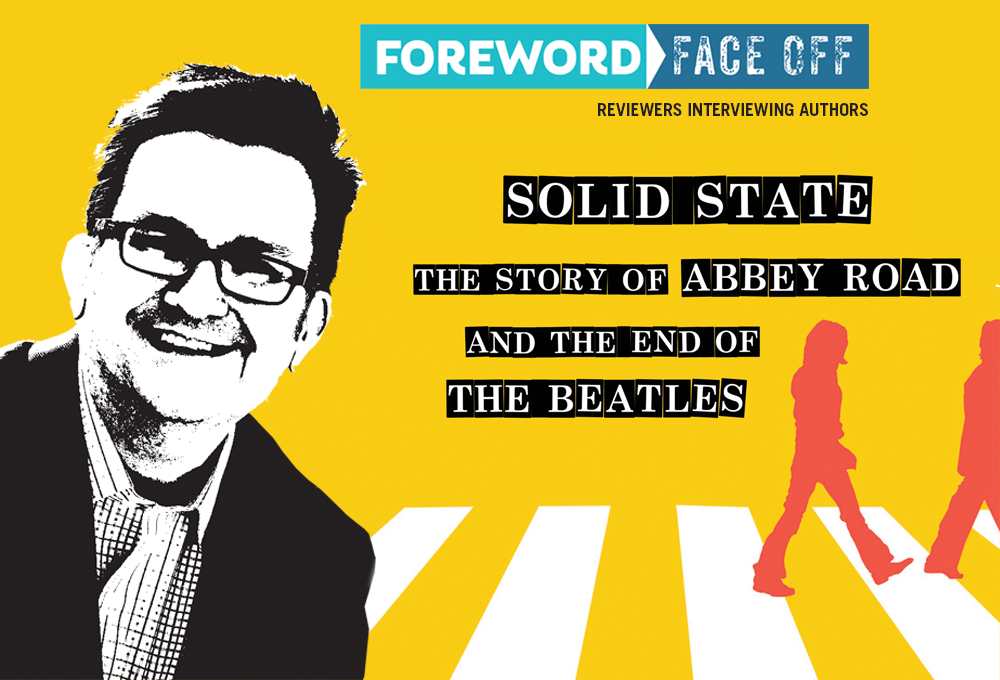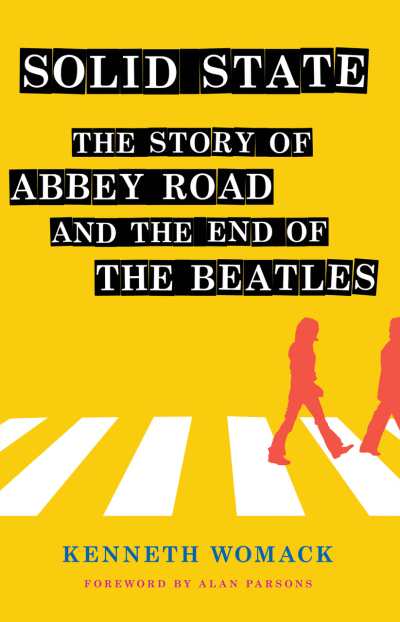Reviewer Jeff Fleischer Interviews Kenneth Womack, Author of Solid State: The Story of Abbey Road and the End of the Beatles

Fifty years and seven days ago—amid the riots, political assassinations, and Vietnam War demonstrations that marked 1969 infamously—the Beatles released their masterpiece Abbey Road. In addition to a memorable list of songs, the album featured innovative solid-state recording technology offering a richer, warmer sound than previous albums and fans were blown away. Alas, to the music world’s great disappointment, John, Paul, George, and Ringo would never Come Together to make music again.

Whatever Something (or many things) prompted the breakup, in addition to fascinating anecdotes from the recording studio, and other tales from the last year the band stayed together is the subject of Kenneth Womack’s Solid State. In his review for the September/October issue of Foreword Reviews, Jeff Fleischer writes, “Because of its laser focus on the period surrounding the Abbey Road sessions, Solid State does a great job of describing the final weeks of the Beatles as a going concern: the personal disagreements, the breakup, and most importantly, their ability to put that all aside long enough to write and record a set of songs that stands the test of time.”
Yes, Maxwell’s Silver Hammer, Oh! Darling, Here Comes the Sun, Carry that Weight, and all the others on the album still earn playing time after five decades. The Beatles were simply the best rock band of all.
With the help of Cornell University Press, we put Jeff in touch with Kenneth for this captivating conversation.
Take it from here, Jeff.
With Abbey Road out fifty years this fall, how did you decide what approach to take when working on a book about the album?
Given that Abbey Road is inextricably bound up with the story of the group’s disbandment, I was keen on providing readers with a narrative-driven account of that final year and its aftermath. In so doing, I not only wanted to celebrate the incredible achievements associated with the LP, but also to help readers understand why the Beatles—in spite of the experience of making the album—couldn’t move forward. To this end, I drew upon the metaphor of the Beatles as a kind of “solid state,” referring both to the technology that resulted in the album’s production, as well as the strong foundation in which they left their legacy when they went their separate ways in the autumn of 1969.
In addition to the Beatles themselves, Solid State celebrates the technology that George Martin and his team used to record the album. What do you see as the biggest innovations the band used on Abbey Road?
There’s little doubt that the solid-state mixing desk resulted in a more expansive and nuanced sound for the band. Listeners are routinely struck by how warm and bright the album sounds in comparison with the tube equipment that they previously deployed. But having said that, the most important innovation is just how good the band members had become as musicians. They are virtuosic on Abbey Road. Their vocals and musicianship were arguably never better than they revealed on their swan song.
You’ve written several books about the Beatles. What surprised you most in your specific research for this one? What did you learn that was new to you?
Numerous historical nuances emerged during my research that assisted me in capturing what it must have been like during the production of the LP. But with these kinds of books, it’s typically the journey that matters. And the journey for this book was tough going. I found myself, quite literally, going through a mourning period when I landed on the other side of the recording sessions associated with the record. There is an undeniable sadness and profound grief that you experience when you observe any relationship in a state of collapse, and the end of the Beatles was no different.
Also, how did you first become interested in the Beatles as a subject?
As with many thinkers about the Beatles, I continue to be fascinated by their unrivaled artistic trajectory—an upward movement that took them from “Love Me Do” to the Abbey Road medley in just seven years. There’s simply nothing like it in the annals of art.
In your opinion, where does Abbey Road rank in the Beatles’ catalog and why?
I could make a case for several of their albums, but Abbey Road enjoys a special prominence in my thinking about the band’s career. It is the artistic culmination of their vision as it unfolded from 1962 to 1969. It has also enjoyed a significant reevaluation from its original release to the present that underscores how the LP has earned its vaunted place in their recording canon.
What do you most hope the audience comes away with after reading Solid State?
That the Beatles did absolutely all that they could until they couldn’t do it anymore. It’s a sad story, of course, when any beautiful thing comes to an end, but the story of the Beatles is and always will be a bittersweet one. I hope that this book helps them to enjoy that experience in a profound way.
Jeff Fleischer
